Very often, the term “capitalization” is used in aspects of software development and accounting, or even in discussions of how to treat and report software development costs. Question that arise here is whether software testing can be capitalized? There needs to be an analysis of the larger issue of software capitalization: the rules that govern it, the potential benefits, and implications for capitalizing software development costs.
What is Software Capitalization?
Software capitalization refers to an accounting practice where cost on developing software is treated as assets rather than as expenses. The effect is that the organization can distribute the costs over the useful life of the software, not recognizing them in one go. By capitalizing, a company will be able to properly align its statement of financial position and performance, taking benefits from the software over some time.
Capitalization of Software Development Costs
There exist certain accounting standards and guidelines for the capitalization of software development costs. In Australia, the relevant accounting standards for the capitalization of software development costs are outlined in AASB 138 Intangible Assets. This standard is aligned with International Financial Reporting Standards (IFRS), particularly IAS 38, and it provides comprehensive guidelines on how to handle the costs associated with developing software.
Software Capitalization Rules
The relevant accounting standards require that the software development life cycle be split into different phases with distinct rules concerning the capitalization:
1. Preliminary Project Stage
Costs associated with conceptual formulation, design, and planning of the software during this phase are generally expensed as incurred. This is because these are not directly related to the creation of the final product.
2. Application Development Stage
The costs utilized in this phase, such as coding, testing, and activities directly related to developing the software, can often be capitalized. This is a phase in which intensive effort is made in developing an operating software product.
3. Post-Implementation/Operation Stage
The cost associated with maintenance-related, training, and minor updates, which is added when the software is already in use, are generally expensed. These do not directly create the software but facilitate its ongoing operations.
Can Software Testing Be Capitalized?
Software testing is a part of the application development stage, which can be capitalized. That being said, there are some critical considerations and conditions that must be satisfied to capitalize testing costs:
1. Directly Attributable Costs
For the capitalization of software testing costs, such testing has to be specifically identifiable with the development of the related software. In other words, the activities conducted for testing must be a core integral process for the assurance of software functionality and performance.
2. Clear Documentation
The companies should maintain all records related to testing activities, time, and resources consumed. Proper documentation facilitates and supports the capitalization process, and compliance is possible in accounting standards.
3. Stage of Development
Any testing costs used prior to reaching intended design and functionality levels may not be capitalizable. Testing that occurs as part of the final development phase to ensure the completeness and operability of the software may, in general, be capitalized.
Benefits of Capitalizing Software Development Costs
Capitalizing software development costs, including testing, offers a number of financial benefits associated with:
1. Improved Financial Statements
One would be capitalizing these costs and spread it over a number of years, which would also result in smoother financial results. This approach will help in matching the cost with the revenue that is going to generate from the software during its useful life.
2. Higher Profit Margins
It decreases the immediate impact of development costs on profitability. This may be especially helpful to businesses that are large investors in software development, which helps them maintain stronger margins in the near term.
3. Increased Value of Assets
Capitalized software development costs become part of the overall value of a company’s assets. This turns the balance sheet more attractive to the investors and stakeholders.
4. Tax Benefits
Capitalizing software development costs, depending on the jurisdiction may bring along tax benefits. Depreciation or amortization of capitalized software costs may be deductible over time and hence reduce taxable income.
Challenges and Considerations
While there are significant advantages to capitalizing software development costs, inclusive of testing, certain challenges exist associated with the same. These include:
1. Complexity in Tracking Costs
Keeping proper records and reports on software testing activities is not easy, so companies should be in a position to implement robust accounting systems in case there is a case for the capitalization of these costs.
2. Judgement and Estimation
It requires significant judgement and estimation regarding the kind of costs that are directly attributed to developing software. As such, it is most likely prone to errors and disagreements with the auditors.
3. Regulatory Compliance
The accounting standards and regulations should be followed. Non-compliance with capitalization rules or their misapplication may result in financial restatements and regulatory challenges.
4. Cash Flow Implications
With respect to short term profit generation, capitalizing expenses can significantly contribute, but it does not have any direct cash flow implications. A business will still have to generate cash to continue funding development and operational expenses.
Software testing can be capitalized if it falls within the accounting standards and regulations. For intangible assets belonging to companies, such as testing, capitalizing the software development costs has several advantages concerning financial statements, profit margins, and asset values. It, however, poses challenges with respect to detailed tracking and adherence to complicated rules.
Any organization or professional developing software must be aware of the subtleties connected with the capitalization of software and their consequences on financial reporting. When the rules are followed effectively, this will enable firms to use capitalization in support of financial strategy and thereby align accounting practices with the long-term financial benefits obtained from their software investments.

